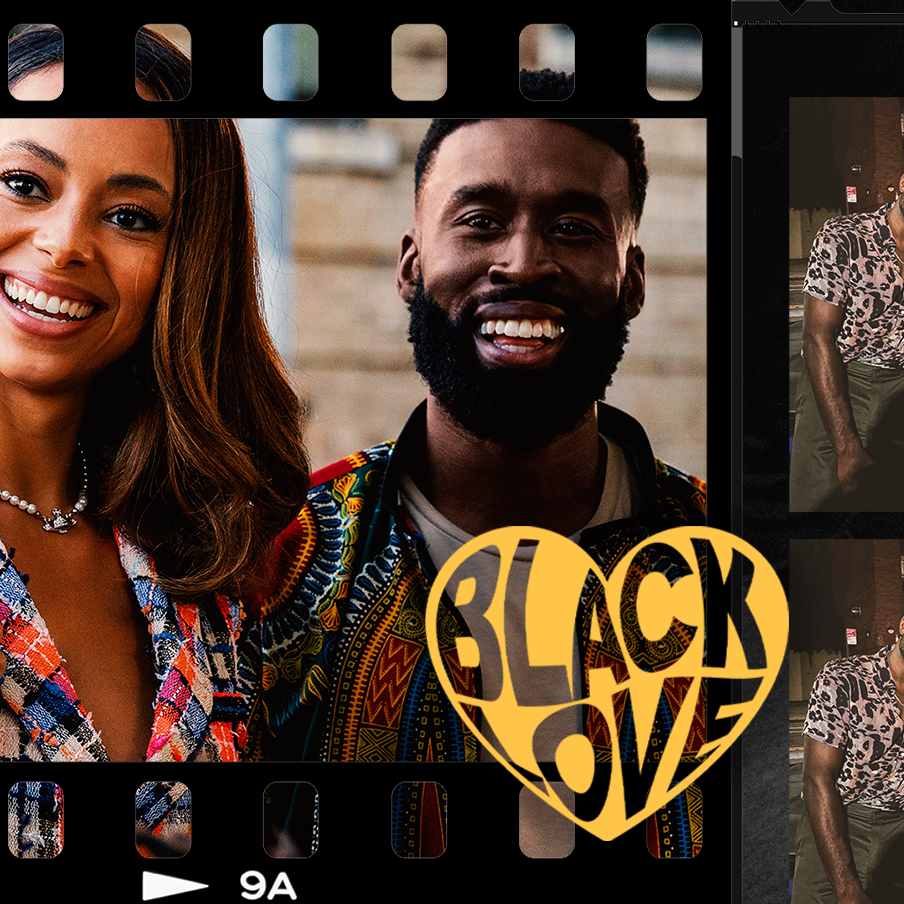Last month at the Sundance Film Festival, I noticed a small, but significant exchange in Nanny, an upcoming (history-making) horror film about a Senegalese nanny haunted by terrifying visions. Aisha, the film's protagonist played by Anna Diop, is walking beside her budding love interest Malik, when he poses a playful, self-deprecating quip: "You gonna tell me where you're from or you think I'm a dumb American who thinks Africa is one big ass country?"
"It starts with an S," she hints. Malik, played by Sinqua Walls, soon lands on the correct answer and wins a smile. A multigenerational African-American, he admits he's never been to Africa ("Does Harlem count?"), but flexes some awareness of West African culture when he asks which nation makes the best jollof, a national delicacy among the region and the source of a zero-chill rivalry. ("What do you know about jollof rice?!" "What don't I know about jollof rice, baby?!")
With a few smart lines, writer and director Nikyatu Jusu successfully sparked a slow burn that would later erupt into one of the best lovemaking scenes I've watched in a while. But those lines also acknowledged the African Diaspora, a wide, global breadth of Blackness, offering a rare cinematic portrayal of Black people from different nations, continents, and cultures falling in love. And in a country like the U.S., where one in ten Black people are foreign-born immigrants, exploring Black intercultural relationships in film and television challenges the notion that Black people of varying cultures are not in intimate community with each other and the very white American tendency to make Black people a monolith.

Last month at the Sundance Film Festival, I noticed a small, but significant exchange in Nanny, an upcoming (history-making) horror film about a Senegalese nanny haunted by terrifying visions. Aisha, the film's protagonist played by Anna Diop, is walking beside her budding love interest Malik, when he poses a playful, self-deprecating quip: "You gonna tell me where you're from or you think I'm a dumb American who thinks Africa is one big ass country?"
"It starts with an S," she hints. Malik, played by Sinqua Walls, soon lands on the correct answer and wins a smile. A multigenerational African-American, he admits he's never been to Africa ("Does Harlem count?"), but flexes some awareness of West African culture when he asks which nation makes the best jollof, a national delicacy among the region and the source of a zero-chill rivalry. ("What do you know about jollof rice?!" "What don't I know about jollof rice, baby?!")
With a few smart lines, writer and director Nikyatu Jusu successfully sparked a slow burn that would later erupt into one of the best lovemaking scenes I've watched in a while. But those lines also acknowledged the African Diaspora, a wide, global breadth of Blackness, offering a rare cinematic portrayal of Black people from different nations, continents, and cultures falling in love. And in a country like the U.S., where one in ten Black people are foreign-born immigrants, exploring Black intercultural relationships in film and television challenges the notion that Black people of varying cultures are not in intimate community with each other and the very white American tendency to make Black people a monolith.

 Last month at the Sundance Film Festival, I noticed a small, but significant exchange in Nanny, an upcoming (history-making) horror film about a Senegalese nanny haunted by terrifying visions. Aisha, the film's protagonist played by Anna Diop, is walking beside her budding love interest Malik, when he poses a playful, self-deprecating quip: "You gonna tell me where you're from or you think I'm a dumb American who thinks Africa is one big ass country?"
"It starts with an S," she hints. Malik, played by Sinqua Walls, soon lands on the correct answer and wins a smile. A multigenerational African-American, he admits he's never been to Africa ("Does Harlem count?"), but flexes some awareness of West African culture when he asks which nation makes the best jollof, a national delicacy among the region and the source of a zero-chill rivalry. ("What do you know about jollof rice?!" "What don't I know about jollof rice, baby?!")
With a few smart lines, writer and director Nikyatu Jusu successfully sparked a slow burn that would later erupt into one of the best lovemaking scenes I've watched in a while. But those lines also acknowledged the African Diaspora, a wide, global breadth of Blackness, offering a rare cinematic portrayal of Black people from different nations, continents, and cultures falling in love. And in a country like the U.S., where one in ten Black people are foreign-born immigrants, exploring Black intercultural relationships in film and television challenges the notion that Black people of varying cultures are not in intimate community with each other and the very white American tendency to make Black people a monolith. |














0 comments:
Post a Comment